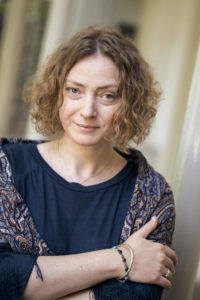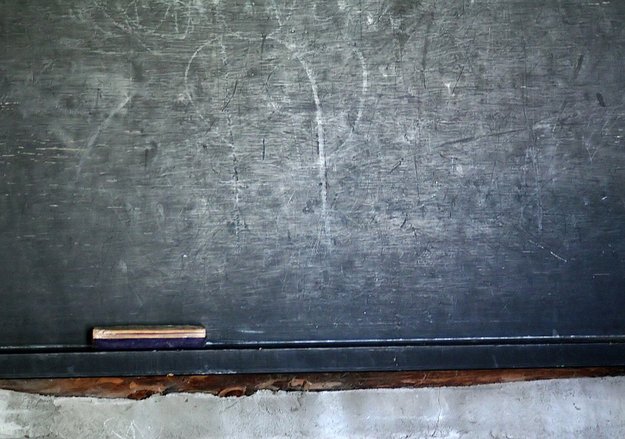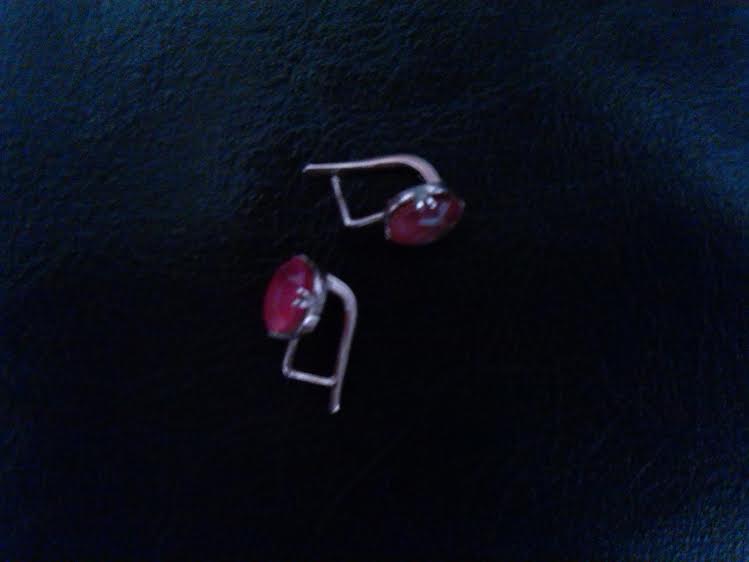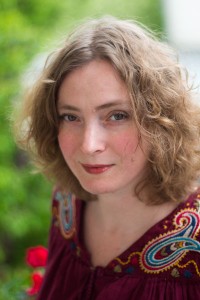 On a Sunday in late sleety March, 1984 my clan was celebrating Grandmother’s seventieth anniversary. We lived in Zaporozhye, a failed industrial giant in the south-east of Ukraine. There was a deluge of toasts, vodka, champagne, red caviar and homemade poems.
On a Sunday in late sleety March, 1984 my clan was celebrating Grandmother’s seventieth anniversary. We lived in Zaporozhye, a failed industrial giant in the south-east of Ukraine. There was a deluge of toasts, vodka, champagne, red caviar and homemade poems.
The toasts and the poems were all pompous nonsense, the caviar too salty. My cousin Shurik and I were exiled to the nursery because we had crawled under the dinner table, moving the white linen cloth dangerously while taking off the guests’ shoes. We were ordered to occupy ourselves with quiet games until they called us in for tea and cake. In the nursery, Shurik and I had exhausted both classic Scrabble and table football; then the less Orthodox, self-invented “Beat the Lazy Fool” and “Husband and Wife Are Looking for a Treasure under the Bed.” Still, there was no news of the dessert, and we were getting bored yet again. So I took a sketch book and some felt tips and drew a jagged oval in the middle of the page.
I told Shurik, “This is the Island of Poovia in the Souporific Ocean.”
“Is it mine?” Shurik asked. “Only half of it, but you are President,” I said, generously giving the younger sibling priority and ascribing myself the post of the Chancellor.
While the President was draining the blue felt tip to color the Souporific Ocean, the Chancellor distributed the remaining political power on Poovia among the members of the family. We knew no one else who we could command to fulfill state duties and practice the pronunciation of their new names, far too convoluted even for Ukrainian tongues.
The two remaining hours before the dessert passed unnoticed, and then we were finally gorging ourselves on the delicious Napoleon cake and seeping Krasnodar tea. Our parents, laughing and cursing, were stumbling on the new names that I had printed on paper slips: Myrrn Kyldynysyvj, Minister of Defense; Ryitta Brbukhovva, State Secretary – just to mention the easiest ones. Only for Grandmother, a retired piano teacher, had we made a magnanimous exception. She got an easy, mellow name of Marrám Lalá and the cushy post of the Minister of Culture.
Thus, in 1984, behind the Iron Curtain, we suddenly had a whole island to ourselves, and believe me, it was a most tropical one. Tangerines that we could only eat on the New Year’s Eve in real life, were served to the President first thing every morning. Many a felt tip was spent depicting the President’s palace, beaches, palm groves, and on designing the gorgeous Chancellor’s dresses.
Truth to say, the rest of the government didn’t do anything at all besides asking us, from time to time, “And are you still playing that game, what’s its name… Peevia?”
The only goal of Poovian politics was fostering a huge, harmless and humorous cult of the President’s personality – oh that girl who had had an operation to engrave his name on her ventricle; oh that funny fat man who had stolen the President’s night pot.
For Shurik, the main sense of Poovia was its two football teams sponsored by the competing electronic corporations, the Chancellor’s Melon and the President’s Cucumber. Each of the footballers had his own personality: the Melon goalkeeper, for instance, was so slow that a crow made a nest on his head during the final match. Needless to say, the Cucumber won more often.
For me, the beauty of Poovia was in creating a new language. I compiled a dictionary of Poovarian, about two hundred splendid words – verbs, nouns, adjectives, idioms that existed, I could swear, in no other language (for example, to compliment a beautiful woman, one would have to say, “What bald teeth you have!”) The grammar of Poovarian resembled Russian, with a tinge, as I discovered only not long ago, of French and Turkish. I wrote the National Poovarian Anthem, some songs for pop-stars, and many articles for the quality newspapers and tabloids – all that at the expense of homework.
With the help of a primitive cassette recorder, we broadcast important balls and receptions. We interviewed the President, the Chancellor and, occasionally, the increasingly senile and hence the least microphone-shy Marrám Lalá.
Poovia thrived for three years, five cassettes and fifteen sketch books. Then Shurik and I were blown away from the island, estranged from each other by puberty.
Children’s life in the Soviet Union was not so awful as to need radical distractions. We had our share of fun: music lessons, table tennis, and we both attended a good school with in-depth English instruction. Eating tangerines once a year in no way meant that we starved. Living in communal flats or tower blocks did not make us claustrophobic. For us, tales about Lenin as a little boy did not sound like brainwashing and a children’s military parade at the primary school was as normal as ABC. In 1984, we did not feel trapped in an anti-utopia.
Now I see Poovia as a nursery presentiment of emigration: a dress rehearsal a decade in advance; an intuition, naïve but not entirely wrong, of western life as we perceived it later. For me, it was also a dress rehearsal of writing, in a language not my own.
Shurik and I still remember each other’s birthdays. “Are your teeth still bald?” he always asks me instead of congratulating.
Little did we know then that Shurik would become one of the first high school graduates in the ex-USSR to go to study abroad, first in Switzerland, then in England, and end up working in a renowned London bank. The floor of his living-room is the size of a football field and wears a snow-white carpet.
I was very happy to escape the 1990s chaos and corruption of the post-Soviet Ukraine – nothing would ever change and I didn’t feel responsible for improving things at the cost of my personal goals. I entered the period of a decade-long denial of my motherland, busy building a new life from scratch. Leipzig, Germany became my new home. To my parents, my carpetless living-room seems the size of a tennis court. When they visit me, I tell them that when we go to Cyprus in March, ripe tangerines fall down from the trees, and no one cares to pick them.
It was in 2014 that Ukraine pulled me back into its courageous, fiery orbit of the Maidan and the War of Independence with its terrible toll. I scarcely believed my ears and eyes when the world news uttered the name of Donetsk, my alma mater city in the east, and its adjacent towns, and showed those tranquil, drowsy places in fire and chaos. I could do little about it, apart from feeling acute empathy and shame. The only thing that made up for my denial was translating wonderful, inimitable contemporary Ukrainian poetry into English for publication in American and British literary magazines and anthologies.
Last year, I broke my self-imposed moratorium and flew to Kiev. I met my old college mates who’d had to flee the war-afflicted territories where they had enjoyed well-established lives. The airplane was landing, and I looked down from the window in impatient, torn anticipation. The blue Dnieper River sparkled in the light of the setting sun and in its middle, it wasn’t the ancient capital of Kiev I saw. It was my Island of Poovia that stretched under the plane wings in all its 1984 splendor.


